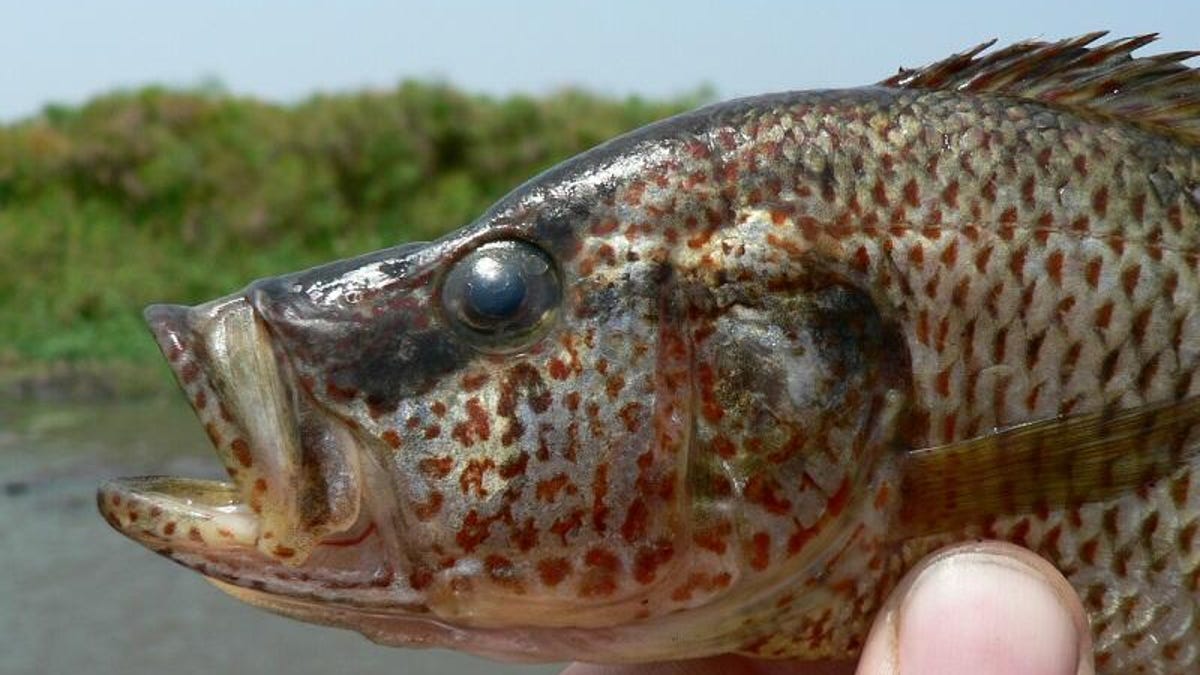These female fish can create a new species if their partners are hot enough
Dashing strangers can lure female cichlids into adventurous breeding.

One of the new predator cichlid fish species that evolved in Lake Mweru.
If her suitor is particularly handsome -- or if she can't see him properly -- a female fish will mate outside her species. And that, according to new research from an international team of scientists, can lead to her giving birth to entirely new and diverse species of fish.
The study, published Wednesday in the journal Nature Communications, examined 2,000 fish from two freshwater lakes in East Africa, along with DNA analysis of more than 400 cichlid fish (tilapia is a cichlid fish, for example). More than 40 new species were found in one of the lakes, Lake Mweru. The hybrid offspring can feed on things their parents can't, invade new habitats and swim into deeper waters than their ancestors.
"When Lake Mweru was formed it combined cichlid lineages from the Congo and the Zambezi. The cichlids from these different drainage systems then mated with each other," lead study author Joana Meier said in a statement. "This could have been because when the lake formed, the water was very cloudy and they couldn't see colours properly so the females were not being as choosy about selecting a mate in their new environment. Mating between cichlids from different drainage systems produced very diverse offspring combining the genetic traits of both parental species."
It's unclear whether the new species will survive, as they may compete with each other and die out, Meier said. But the hybridization research in Lake Mweru shows that in a new environment with lots of ecological opportunity, hybridization could be a good thing that actually increases biodiversity.

